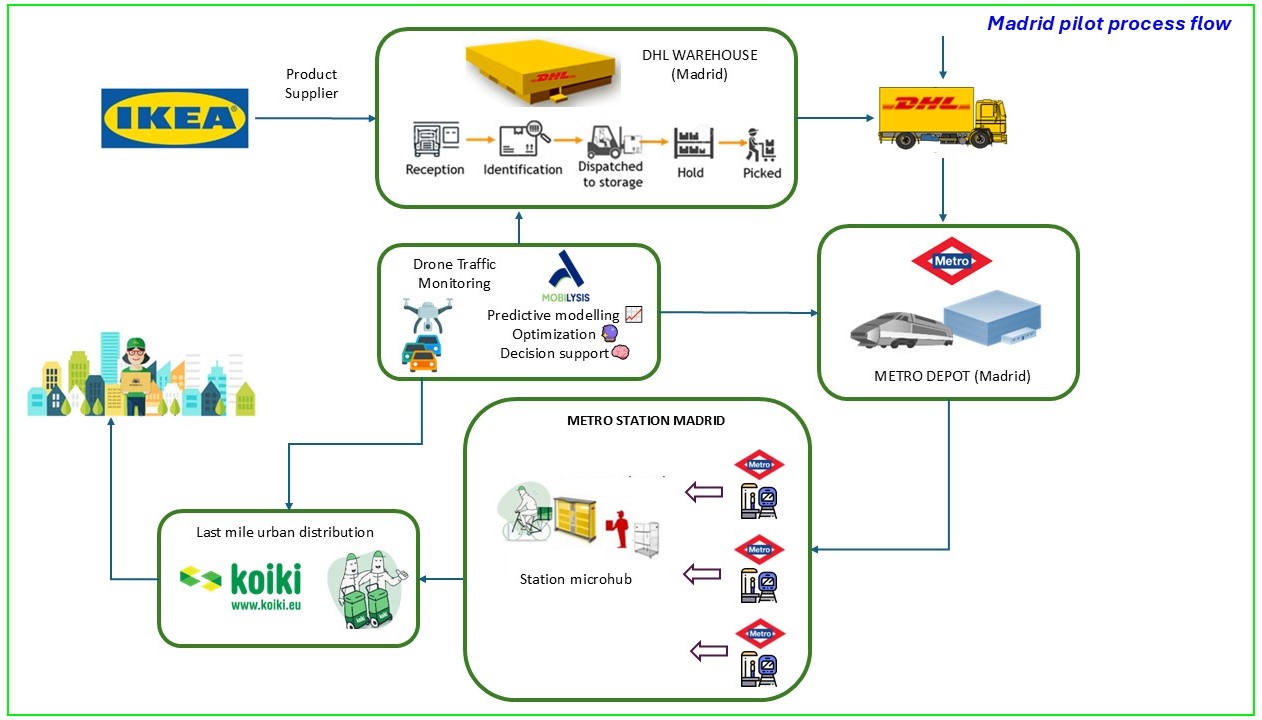Madrid Use Case
The Madrid Use Case focuses on developing multimodal transport solutions to create a more sustainable approach to last-mile delivery. Currently, the logistics process in Madrid involves delivering goods from DHL warehouses to customers in the city’s metropolitan center. This system relies heavily on a traditional, siloed approach, with most transportation handled by external players using trucks and vans. This has led to inefficiencies, resulting in slower delivery times, increased congestion, and a greater environmental impact.
The DELPHI Use Case seeks to transform this model by creating an integrated logistics network that connects urban and peri-urban areas. For example, parcels will be presorted into specific roller cages at DHL facilities and transported directly to dedicated METRO (subway) depots. These depots will serve as starting points for a streamlined logistics process using the METRO infrastructure.
Final deliveries to customers will depend on factors such as delivery time requirements and the locations of Microhubs. These Microhubs will be strategically placed in specific METRO stations to ensure optimal parcel density and timely delivery. Roller cages will be transferred from the train to the Microhubs, where KOIKI messengers will complete the final delivery either on foot or using cargo bikes.
This innovative approach accelerates delivery times, reduces road congestion, and minimizes environmental impact, creating a more financially sustainable and eco-friendly logistics network for Madrid.



